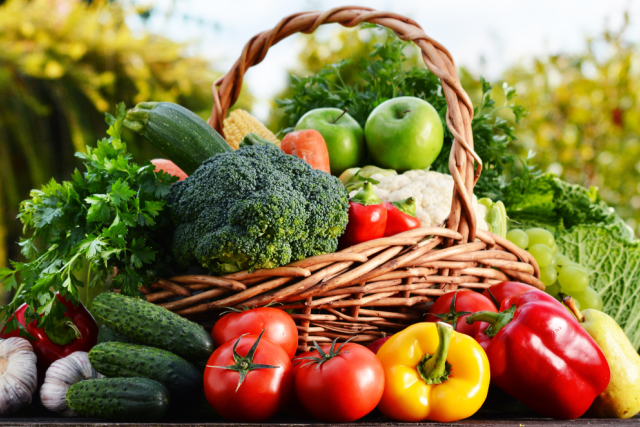Dear Doctor: In our family, some of us have gained weight in quarantine. I’ve been thinking this might be a good time to try a more plant-based diet. It’s supposed to be better for you physically, and I want to know if that’s true. We are meat-eaters and aren’t interested in going vegan.
Dear Reader: You’re far from alone when it comes to putting on a few pounds during the past year of the pandemic. Often referred to as the “quarantine 15” -- or even the “COVID-19 19” -- weight gain is just one of the side effects a number of us are experiencing as we stay hunkered down close to home, cooking and snacking our way through these strange and challenging days. Not only have shelter-in-place orders closed gyms, pools, ball fields and rec centers, but they have separated millions of people from daily physical activities they didn’t even realize were helping to keep them fit. Those flights of stairs you take at work or school, the walks through corridors or parking lots or out to lunch -- they all add up. And now, idled at home, so have the extra pounds.
There’s a lot of research about the health benefits of a plant-forward diet, which is rich in vitamins, minerals, micronutrients and fiber. Fiber is particularly important, as it helps reduce inflammation, increases the absorption of nutrients and nourishes the billions of microbes in our gut. Fiber also helps reduce cancer risk, particularly colorectal cancers. Plant-based diets have been linked to improved heart health, including a reduced risk of cardiovascular disease. In case that’s not persuasive enough, the results of a new study, published at the start of the year in the journal Nature Medicine, point to a link between the presence of certain bacteria in the gut microbiome and the ability to maintain healthful blood sugar levels after a meal. Other species of bacteria were associated with lower post-meal blood lipid levels and fewer inflammation markers. Each of these species of so-called “good” microbes were found in greater numbers in people with diets high in a wide range of fresh fruit, vegetables and leafy greens.

We think that a more plant-based diet is a great idea for your family’s health. As with all kinds of change, you have the best chance of success if you move incrementally. You don’t have to give up meat, but if you start thinking of it as a condiment, then you’ll automatically cut back on how much you’re eating. Foods like stir fry, kebabs, soups, stews and tacos are as much an opportunity to use a wide variety of greens and vegetables as are salads. It may sound obvious, but find out what your family’s favorite fruits and vegetables are, and start building your plant-based meals around those. Keep a fruit bowl on the counter so it’s easy to grab a healthy snack. If time is an issue, frozen vegetables and bagged salads can be a real life-saver. And, as you make the transition and get adventurous, consider trying one or two meatless days per week.
(Send your questions to askthedoctors@mednet.ucla.edu, or write: Ask the Doctors, c/o UCLA Health Sciences Media Relations, 10880 Wilshire Blvd., Suite 1450, Los Angeles, CA, 90024. Owing to the volume of mail, personal replies cannot be provided.)





